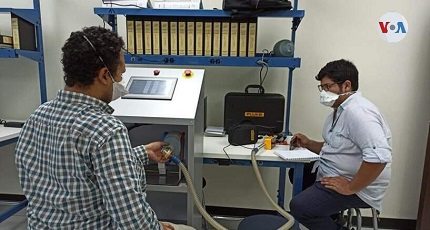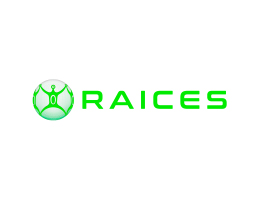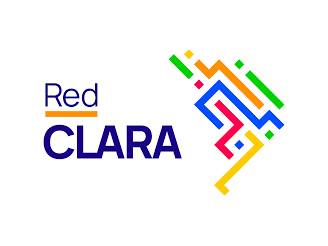
A collaborative platform in El Salvador in the fight against the COVID-19 pandemic
If there is one thing the current COVID-19 pandemic has taught us is that there is much we do not know. Yet the race for treatment protocols, vaccinations and medical technologies is ongoing. Today. And developing as more is learned and revealed. Alongside the uncertainty, operational decisions on a local, national and global scale are needed to safely allow commerce, education and daily life to continue in the shadow of the threat of renewed outbreaks and other potential viral pathogens.
Researchers and operators of El Salvador’s national academic R&E network understand that the ideal way to plan for a safe and healthy future in such an uncertain environment is to be a catalyst in joining the best minds and resources in a collaborative platform.
Two very important allies, RAICES, the El Salvador national research and education network (NREN) and the Francisco Gavidia University (UFG), joined forces to develop solutions and offer platforms to best combat the threat.
Life-saving innovation
 A prototype of an automated mechanical respirator to support hospitals in emergency care was created by the Nanotechnology Laboratory of the UFG. This solution works with an engine and with elements made with a 3D printer, presses a respiratory aid manual pump. According to the director of the UFG Institute of Science, Technology and Innovation, Óscar Picardo, the expectation is that once the prototype is completed, it will comply with all the conditions and requirements of the FDA (US Food and Drug Administration). “This would allow the production on a pre-industrial scale of five or 10 more pieces of equipment,” he says. “This then could evolve to commercial capacity and large-scale production.” The university also intends to develop a more “complex” respirator, such as those used in intensive care units.
A prototype of an automated mechanical respirator to support hospitals in emergency care was created by the Nanotechnology Laboratory of the UFG. This solution works with an engine and with elements made with a 3D printer, presses a respiratory aid manual pump. According to the director of the UFG Institute of Science, Technology and Innovation, Óscar Picardo, the expectation is that once the prototype is completed, it will comply with all the conditions and requirements of the FDA (US Food and Drug Administration). “This would allow the production on a pre-industrial scale of five or 10 more pieces of equipment,” he says. “This then could evolve to commercial capacity and large-scale production.” The university also intends to develop a more “complex” respirator, such as those used in intensive care units.
A united response
 Another activity by UFG was the development of a public policy plan to manage the impact of the COVID-19 outbreak in other areas of El Salvador’s society, namely the economy. The report, “Health, economics and mathematical models: an approach to COVID-19 in El Salvador and public policy proposals“, presents data, questions and perspectives on the relationship between economy and health in the period following the COVID-19 pandemic. The seminal work, details the relationship between economic and public health decisions, illustrating how they are interdependent, complex and co-determining and highlighting the dynamics and relationships between the economic system, the environment, and a society’s institutions.” Using the SIR / SEIR mathematical model to make Python projections to predict the development of the pandemic and design policies, this data is being used to project policies, measures and programs that address the most pressing aspects pf the crisis. The team included researchers from the Department of Social Studies of the Salvadoran Foundation for Economic and Social Development (FUSADES), the “Carlos Castillo Chávez” Mathematical Modeling Center, Disruptiva.media, and the School of Medicine at Tufts University in the United States.
Another activity by UFG was the development of a public policy plan to manage the impact of the COVID-19 outbreak in other areas of El Salvador’s society, namely the economy. The report, “Health, economics and mathematical models: an approach to COVID-19 in El Salvador and public policy proposals“, presents data, questions and perspectives on the relationship between economy and health in the period following the COVID-19 pandemic. The seminal work, details the relationship between economic and public health decisions, illustrating how they are interdependent, complex and co-determining and highlighting the dynamics and relationships between the economic system, the environment, and a society’s institutions.” Using the SIR / SEIR mathematical model to make Python projections to predict the development of the pandemic and design policies, this data is being used to project policies, measures and programs that address the most pressing aspects pf the crisis. The team included researchers from the Department of Social Studies of the Salvadoran Foundation for Economic and Social Development (FUSADES), the “Carlos Castillo Chávez” Mathematical Modeling Center, Disruptiva.media, and the School of Medicine at Tufts University in the United States.
Among the conclusions, the study points out that, in order to expand the capacity of the public health system, minimize economic impacts and overcome the COVID-19 pandemic challenges, it is important to involve companies, universities and other institutions that contribute valuable knowledge.
“We offer the connectivity and support that allows our researchers to leverage the power Advanced Networks,” says Juan José Sánchez C., Executive Director of RAICES, El Salvador’s NREN. “This critial infrastructure reinforces the work at UFG and other universities.”
For more information please contact our contributor(s):


